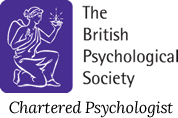Difficulties in School and with Learning
Conatus offers parents and education professionals access to detailed educational assessments and psychological interventions to help students fulfil their potential and enjoy the experience of School or College, whatever their age.Many children will have additional educational needs of some kind during their education. Schools and colleges can help most students overcome the barriers presented by their difficulties, quickly and easily. However a few children will need extra help for some or all of their time in school.
Additional (Special) Educational Needs could refer to one or more of the following concerns:
- Learning Difficulties - a delay or particular difficulty in acquiring basic academic skills
- Specific Learning Difficulty - problems in acquiring skills relating to a particular area such as reading, writing, number or processing information at sufficient speed to keep up with peers
- Emotional and Behavioural Difficulties - maintaining appropriate behaviour in school, or difficulties in making friends or relating to adults at school
- Sensory or Physical Needs - hearing or visual impairments that interfere significantly with learning tasks and abilities
- Communication Problems - the child has difficulty expressing themselves, understanding what others are saying or communicating to them
- Medical or Health Conditions - that hamper a child's progress or involves extensive treatment elsewhere which affects the child's education
It is not necessarily the case that your child has special educational needs (SEN) simply because he or she is making slower progress then you might hope. Nor will they necessarily have SEN because teachers have suggested your child might benefit from a certain kind of support, help or small group activities in class. More is known now that children and young people make academic progress at different speeds and have different ways they learn the best. Teachers are expected to take account of the differences in the way they organise their lessons and teach their classes, and children who seem to be making slow progress or having particular difficulties may be offered extra help to address the apparent delay or difficulty.
When the student's [young person] difficulties are pronounced, an assessment is required in order fully to understand an individual child's needs. This is the process of evaluating - primarily through assessment, observation and interview - the student's knowledge and skills and their beliefs and attitudes about school.
An assessment comprises a number of different nationally and internationally-recognised tests, interviews with the child, parent(s) and teachers as well as, when indicated, other professionals such as the child's doctor, speech and language therapist, CAMHS. Past reports and attainments are also reviewed, along with visits to the school to observe the child in their learning context.
When all of the above information has been gathered, a report is written to document the assessments that have been used, who has been involved and what are the conclusions and recommendations to inform future planning and placement.
An Educational Psychologist (EP) has undertaken a minimum of 7 years of training. This includes a first degree in psychology, at least two years experience in educationally-relevant settings and postgraduate training in Educational Psychology.
As part of their post graduate training EPs study normal child development, the psychology of teaching and learning, including the psychological aspects of teaching young people with special educational needs. They study how groups function, how people in organisations communicate and maintain relationships. They also learn about assessment, problem solving, training and research methods.
EPs work with children and young people between the ages of 0-19 years of age. They work closely with teachers, parents and other involved professionals in education , health and social care settings.
Assessment type: Home Based in your own home.
Assessment time: 3 – 5 hours (includes write-up time)
Assessment cost: £800 (Guide price)
Assessmenttype: School based
Assessment time: 7– 10 hours (includes write-up time)
Assessment cost: £1500 (Guide price)



